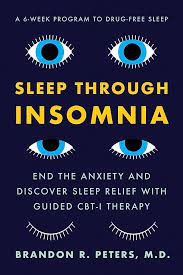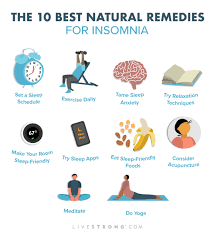Anxiety Insomnia: Understanding the Connection and Finding Relief
Insomnia is a common sleep disorder that affects millions of people worldwide. While there can be various causes of insomnia, one significant factor that often contributes to this condition is anxiety. Anxiety and insomnia often go hand in hand, creating a vicious cycle that can be challenging to break.
When we experience anxiety, our minds become consumed with worry, stress, and racing thoughts. This mental turmoil can make it difficult to relax and fall asleep at night. As a result, individuals with anxiety may find themselves lying awake in bed for hours, unable to quiet their racing minds and achieve restful sleep.
Moreover, the lack of sufficient sleep exacerbates anxiety symptoms during the day. Sleep deprivation can lead to increased irritability, difficulty concentrating, and heightened emotional reactivity. These symptoms further contribute to the cycle of anxiety and insomnia.
Fortunately, there are strategies that can help manage anxiety insomnia:
Establish a Consistent Sleep Routine
Creating a regular sleep routine is crucial for individuals struggling with anxiety insomnia. Going to bed and waking up at consistent times each day helps regulate your body’s internal clock and promotes better sleep quality. Aim for a relaxing bedtime routine that includes activities like reading a book or taking a warm bath to signal your body that it’s time to wind down.
Create a Calm Sleeping Environment
Your sleeping environment plays an essential role in promoting restful sleep. Make sure your bedroom is cool, dark, and quiet. Consider using earplugs or soothing white noise machines if external noises disrupt your sleep. Additionally, invest in a comfortable mattress, pillows, and bedding to enhance your overall sleep comfort.
Practice Relaxation Techniques
Engaging in relaxation techniques can help calm your mind and prepare your body for sleep. Deep breathing exercises, progressive muscle relaxation, and mindfulness meditation are effective techniques that promote relaxation and reduce anxiety. Experiment with different techniques to find the ones that work best for you.
Limit Stimulants and Electronic Devices
Avoid consuming stimulants like caffeine or nicotine close to bedtime, as they can interfere with falling asleep. Additionally, the blue light emitted by electronic devices such as smartphones and tablets can disrupt your sleep patterns. Establish a digital curfew by avoiding screens at least one hour before bed.
Seek Professional Help
If anxiety insomnia persists despite your efforts, it may be beneficial to seek professional help. Consulting with a healthcare provider or a therapist specializing in sleep disorders can provide valuable guidance and support. They can help identify underlying causes of anxiety and develop an individualized treatment plan to address both the anxiety and insomnia.
Anxiety insomnia can be challenging to overcome, but it is not insurmountable. By implementing these strategies and seeking appropriate support, you can gradually break the cycle of anxiety and insomnia, paving the way for restful nights and improved well-being.
7 Unexpected Benefits of Anxiety-Related Insomnia: From Heightened Awareness to a Stronger Support Network
- 1. Increased awareness
- 2. Motivation for self-care
- 3. Greater empathy
- 4. Opportunity for personal growth
- 5. Improved problem-solving skills
- 6. Enhanced mindfulness practice
- 7. Strengthened support network
Four Detrimental Consequences of Anxiety-Induced Insomnia: Cognitive Impairment, Mental Health Decline, Physical Health Risks, and Reduced Daytime Productivity
- Impaired cognitive function
- Negative impact on mental health
- Increased risk of physical health issues
- Daytime fatigue and decreased productivity
1. Increased awareness
Anxiety insomnia, despite its challenges, offers a significant pro: increased awareness. When individuals grapple with anxiety-related sleep disturbances, they are compelled to become more self-aware and gain a deeper understanding of the triggers that contribute to their anxiety. This heightened self-awareness allows individuals to identify patterns, thoughts, and behaviors that may exacerbate their anxiety, leading to better management and coping strategies. By recognizing these triggers, individuals can proactively address them and work towards reducing anxiety levels, ultimately promoting improved sleep and overall well-being.
2. Motivation for self-care
Anxiety insomnia, despite its challenges, can have a positive impact on individuals’ motivation for self-care. When faced with the struggles of sleeplessness due to anxiety, individuals often recognize the importance of prioritizing their overall well-being. This realization prompts them to adopt healthy lifestyle habits that promote better sleep. They become more conscious of their daily routines, incorporating activities that reduce stress and promote relaxation. Whether it’s practicing mindfulness, engaging in regular exercise, or implementing a consistent sleep schedule, anxiety insomnia serves as a catalyst for individuals to take charge of their self-care and make positive changes in their lives.
3. Greater empathy
Experiencing anxiety insomnia can have a silver lining: it can cultivate greater empathy towards individuals who face similar sleep disorders or mental health challenges. When we personally go through the difficulties of anxiety-related insomnia, we gain a deeper understanding of the impact it has on our overall well-being. This firsthand experience allows us to develop empathy and compassion for others who are also navigating similar struggles. It opens our hearts and minds to their experiences, enabling us to offer support, understanding, and encouragement to those facing similar sleep disorders or mental health issues.
4. Opportunity for personal growth
Anxiety insomnia, despite its challenges, presents an opportunity for personal growth. Overcoming this condition demands individuals to develop coping mechanisms, resilience, and effective stress management techniques. By actively addressing their anxiety and insomnia, individuals can cultivate a deeper understanding of themselves and their triggers. They can learn to navigate stressful situations with greater ease and develop a toolkit of strategies to promote better sleep and overall well-being. This journey towards finding relief from anxiety insomnia can lead to personal growth, increased self-awareness, and the acquisition of valuable skills that can be applied to other areas of life as well.
5. Improved problem-solving skills
Anxiety insomnia, despite its challenges, offers a unique advantage in the form of improved problem-solving skills. The relentless pursuit of better sleep quality pushes individuals to delve deeper into understanding the underlying issues that contribute to their anxiety. By actively seeking solutions and addressing these root causes, individuals not only improve their sleep but also enhance their ability to identify and tackle other challenges in their lives. This newfound problem-solving skillset can have a positive ripple effect, leading to overall personal growth and a greater sense of empowerment.
6. Enhanced mindfulness practice
Dealing with anxiety insomnia can have a surprising benefit – it can enhance mindfulness practice. When faced with the challenge of sleeplessness due to anxiety, individuals often turn to mindfulness techniques as a means of finding calm and relaxation. Mindfulness encourages individuals to focus on the present moment, cultivating awareness and acceptance of their thoughts and emotions without judgment. By incorporating mindfulness into their daily routine, those experiencing anxiety insomnia can develop a greater sense of peace and tranquility, ultimately promoting better sleep and overall well-being.
7. Strengthened support network
Experiencing anxiety insomnia can be a difficult and isolating journey. However, one positive aspect of this condition is the opportunity to strengthen one’s support network. By sharing experiences of anxiety insomnia with others who are facing similar challenges, individuals can build connections and foster a supportive community. This sense of camaraderie can be incredibly comforting and reassuring, knowing that you are not alone in your struggles. It allows for the exchange of coping mechanisms, advice, and empathy, creating a space where individuals can feel understood and supported on their path towards better sleep and mental well-being.
Impaired cognitive function
Anxiety insomnia can have a significant impact on cognitive function. When we don’t get enough restful sleep due to anxiety, our ability to concentrate and focus becomes impaired. We may find it challenging to stay on task or retain information, leading to memory problems. Additionally, anxiety insomnia can hinder our problem-solving skills, making it harder to think critically and find effective solutions. The combination of anxiety and insomnia creates a detrimental cycle that affects our cognitive abilities, making it crucial to address and manage both conditions for optimal mental functioning.
Negative impact on mental health
Persistent anxiety insomnia can have a significant negative impact on mental health. The inability to get sufficient sleep due to anxiety can contribute to the development or worsening of mental health conditions like depression and anxiety disorders. Sleep deprivation disrupts the delicate balance of neurotransmitters in the brain, affecting mood regulation and increasing vulnerability to emotional distress. The constant cycle of anxiety and insomnia can create a downward spiral, where poor sleep exacerbates anxiety symptoms, leading to further sleep disturbances and worsening mental health. It is crucial to address anxiety insomnia promptly and seek appropriate support to prevent its detrimental effects on mental well-being.
Increased risk of physical health issues
Chronic sleep deprivation caused by anxiety insomnia can have detrimental effects on physical health. The prolonged lack of quality sleep weakens the immune system, making individuals more susceptible to illnesses and infections. Moreover, the increased risk of cardiovascular diseases, such as hypertension and heart disease, is a concerning consequence of anxiety insomnia. Additionally, the overall physical well-being of individuals can be impaired as the body does not have sufficient time to repair and regenerate during sleep. It is crucial to address anxiety insomnia to mitigate these risks and prioritize both mental and physical health.
Daytime fatigue and decreased productivity
Lack of quality sleep caused by anxiety insomnia can have a significant impact on our daily lives. One of the key drawbacks is the experience of daytime fatigue, where we wake up feeling tired and drained despite having spent hours in bed. This constant exhaustion can lead to decreased energy levels throughout the day, making it difficult to stay focused and perform at our best. As a result, our productivity in daily activities may suffer, whether it’s at work, school, or even during simple tasks at home. The persistent cycle of anxiety insomnia can hinder our ability to function optimally, affecting both our personal and professional lives.




